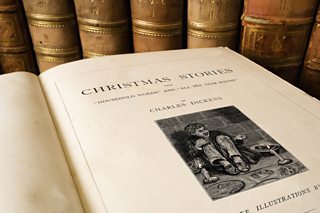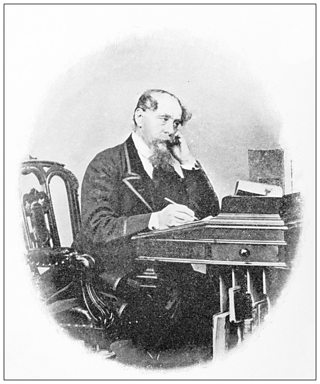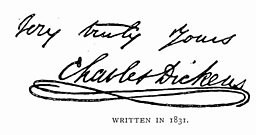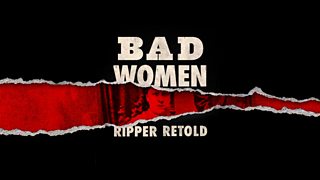A dozen facts about Dickens, the man who redefined Christmas
Charles Dickens is one of the greatest novelists of the Victorian age. His books have been translated into 150 languages, and have never been out of print. But how did a boy from Portsmouth turn into one of the world’s most celebrated literary figures? Why were his words so effective in sparking real societal change? And did his private life align with his famous public image? All is revealed in A Short History of Charles Dickens, on Βι¶ΉΤΌΕΔ Sounds.
Written by Dan Smith and with insights from Lucinda Hawksley, here are just some of the things we learned about the author’s life story.
1. His father went to debtor’s prison.
John Dickens’ salary as a clerk didn’t match his love of luxuries and socialising. In early 1824, when Charles was 12, he was arrested for his debts. Charles drew upon the suffering and humiliation of being poor in these early years in his later work. And John Dickens would become the inspiration for the lovably optimistic Mr Micawber in Charles’ novel David Copperfield – always sure that something will turn up

2. His first job was labelling bottles.
The family’s money problems forced him to take a job in a boot-blacking factory. He worked 10 hours a day, six days a week for just six or seven shillings’ pay. This was back when a loaf of bread could cost around a shilling.
3. He left education at age 15.
After being taken in and out of school during his childhood, he finally found work as a clerk in Gray’s Inn in London, where he learned shorthand. This skill helped open a new career door in journalism. He became a freelance court reporter at his uncle’s newspaper, The Mirror of Parliament – and turned out to be very good at it.
4. His first published fiction appeared anonymously.
He submitted the piece to a magazine in 1833. He then continued to write these sketches of “everyday life” for no fee, although they went down well with readers and critics. He adopted the pseudonym “Boz”, and soon started writing them for the Evening Chronicle, too. In February 1836, his pieces were collected into a volume called Sketches by Boz. It was an instant hit.
5. He dreamed of being an actor.
This ambition to perform was probably triggered during his childhood, since his family enjoyed putting on theatrical shows. In early 1832, he even got an audition at the Covent Garden Theatre – but it wasn’t to be. He came down with a cold that day and never attended.
6. He fell in love for the first time at age 17.
Maria Beadnell was a glamorous banker’s daughter two years Dickens’ senior. When she was 21, Charles told her he loved her – and she called him a “boy”, which left him heartbroken. However, around this time he was introduced to his editor’s daughter, Catherine Hogarth, who he married just over a year later.
7. He campaigned against capital punishment.
He explored the issue in his novel Martin Chuzzlewit and argued against it in letters to the press, triggering national debate.

8. He redefined Christmas.
In December 1843, he published the first of five Christmas-themed novellas. A Christmas Carol, the story of Ebeneezer Scrooge and the ghosts of Christmas Past, Present and Future, was the most popular of the series. It both helped Charles’ finances at the time, and went on to redefine the institution of British Christmas. So you might say it was a success.
9. He had an affair.
In August 1857, Dickens was in Manchester preparing to put on a production of The Frozen Deep, a play by his friend Wilkie Collins. At a reading for new cast members, he met the 18-year-old Ellen Turner. They soon became lovers, despite their 27-year age difference. It didn’t remain a secret for long, though. Dickens ordered a bracelet for Ellen from a jeweller, which was erroneously delivered to his wife Catherine at their family home. This was the beginning of the end for their marriage, and in 1858 they legally separated.
10. He was in a rail crash.
On Friday 9th June 1865, Dickens was riding a train that derailed in Staplehurst, Kent. Of around 100 people on board, ten died and 49 were injured. Traumatised by the accident, Dickens could barely utter a word for two weeks afterwards. From here, his health began to deteriorate.
11. He was among the first celebrities.
The word “celebrity” appeared in the Oxford English Dictionary in 1851, and Charles Dickens was one of the first figures to be called one. Even Queen Victoria was a fan: she wrote in her diary that she found Oliver Twist to be riveting. In 1867, Dickens went on his biggest tour of North America, with 400 engagements in six months. For this, he earned £19,000 – over a million pounds in today’s money. His reception has been compared to when the Beatles visited America. People reportedly followed him down the street, trying to take locks of his hair.
12. His last story was unfinished.
n October 1869, Dickens began writing his crime novel The Mystery of Edwin Drood. The following summer, while writing the book he suffered a massive stroke. He never regained consciousness, and died the next day. He was buried in Poet’s Corner in Westminster Abbey. After a private ceremony, his grave was left open for two days and thousands came to pay their respects. His gravestone was inscribed with only his name and dates, on Dickens’ own orders.

-
![]()
No Such Thing As A Fish
The researchers behind the hit show QI discuss the best facts they’ve found each week.
-
![]()
The Allusionist
An entertainment show about how language works and why we should care.
-
![]()
Shedunnit
Unravelling the mysteries behind classic detective stories.
-
![]()
Bad Women
Historian Hallie Rubenhold tells the real, untold story of the Jack the Ripper victims.





